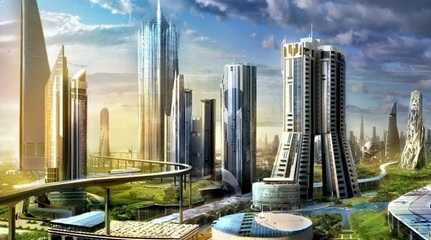
11 May 2022; MEMO: Saudi Arabia's futuristic megacity, NEOM, will hold millions of "Neomians" by the year 2030, according to the project's Head of Tourism.
Speaking to the Emirati newspaper, The National, the NEOM project's Head of Tourism, Andrew McEvoy, said that people are expected to begin arriving to the city in 2024, when "you will see a lot of movement as our first tourism assets begin to open."
He added that, "Work is already under way and the tourism projects will start to roll out from then, "after which the city and all of its attractions are officially planned to open in 2026. Then, by the end of the decade, two million residents – or "Neomians" – are predicted to call the budding megacity their home.
NEOM's residents and tourists will enjoy numerous attractions, such as the Trojena mountain destination, facilities for mountain biking and water sports, a ski slope as well as an interactive nature reserve.
The NEOM project – funded primarily through $500 billion allocated by Saudi Arabia's Public Investment Fund – is set to be a technologically-advanced and eco-friendly megacity which would attract investment and companies from all around the world.
At 33 times the size of New York, and located in Saudi Arabia's north-western Tabuk region along the coast of the Red Sea, it is planned to be a futuristic endeavour, with flying taxis, an artificial moon, and classes taught by holographic teachers all set to be witnessed within the megacity's boundaries.
A key aspect of the city will be its transport, in that it aims to make it entirely sustainable and car-free by 2030. "The city is being built to be completely car-free but I think there will be a slight period of transition," McEvoy acknowledged. "A lot of the mobility options of the future are out there already, like electric hybrids, and we're experimenting with things like flying taxis."
An example of efforts towards that is the recent establishment of a joint venture between NEOM and the German company, Volocopter, which designs and produces aerial vehicles for personal or urban use and transport.
McEvoy revealed that the city will be treated as a separate state or "as a country within a country, with its own economic zone and its own authority. We need to make sure its laws and regulations match the ambitions of those we are trying to attract to work and live here."
Having different laws from the rest of the Kingdom, he said, will ensure it will attract both tourists and people looking to relocate there full-time. Those differing laws could even include the allowance of alcohol, which "is definitely not off the table," he said. "We need to be competitive, and to do that, we have to match what competing destinations are offering."
As for the incoming two million "Neomians", though, McEvoy stated that "We have got about 2,000 Neomians living there already along with about 10,000 construction workers."




